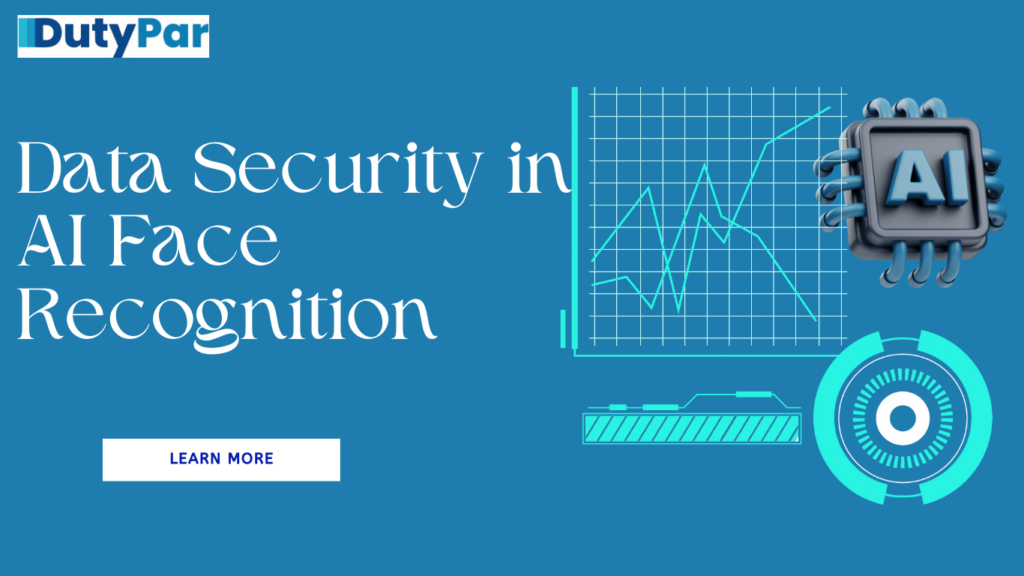
Table of contents
Introduction
Artificial intelligence has greatly changed many factors of our lives with the rapid development of face recognition technology, one of the most exciting technologies in this field. AI-based face recognition is gaining momentum in many different sectors, such as security and police departments, as well as in everyday use, like unlocking one’s smartphone. This, however, brings about some quintessential immediate security concerns related to privacy and ethics of AI-driven face recognition. Going to major security concerns related to AI in face recognition, how IndoAI and DutyPar are dealing with it, and what does the near future has in store for it, is discussed in the following article.
Understanding AI Face Recognition Technology
AI face recognition technology identifies a person by scanning for unique features of the face. In this method, complex algorithms are run through a scanned image or video against a stored database of faces. This method is very wide in its application scope and can use enhanced security systems, tracking of criminals, and smooth user authentication. However, the biggest problem is that this technology also creates serious security risks, which need to be well managed.
Some key security risks associated with AI face recognition
While face recognition by AI offers all those benefits, it simultaneously poses potential security risks and could adversely affect both people and organizations if not managed properly. Below, we’ll discuss some of the primary concerns:
1. Privacy Invasion
AI face recognition captures and saves images of people. It creates an important issue concerning privacy. There are many individuals who think that mass use of AI face recognition could lead to a surveillance state. Unwanted tracking or identification can be contrary to personal privacy and civil liberties. Taking photos in public is an issue with both the ethical and legal aspects.
2. Data Security Breaches
AI face recognition systems hold immense sensitive data storage. Access by hackers of the same data may lead to misuse for identity theft or other nefarious purposes. It could be on account of a weakness in the AI system or due to improper management of data and also lack of adequate security measures for the process. The threat entails high-performance security measures to protect the data.
3. Spoofing and Manipulation
Spoofing: Spoofing is cheating the AI face recognition system by clicking pictures or masks or videos of someone. Deepfake technology might be used by hackers to breach the security systems. The AI system needs to be configured to counter spoofing attack detection. Otherwise, it may invite certain unwanted access into the secured areas or the system.
4. Bias and Discrimination
Except for the accuracy point, other issues are also envisioned in security concerning AI face recognition. Algorithms developed may have discriminative results. For instance, law enforcers and security sectors are likely to have ruinous impacts. Where mistaken identification of a given population leads to false arrest or malicious targeting. Companies such as IndoAI strive to come up with AI bias-free systems.
How IndoAI and DutyPar Enhance Security in AI Face Recognition
IndoAI, an AI camera manufacturer, and DutyPar, a software development company, are actively contributing to more secure and ethical AI face recognition systems. Let’s take a closer look at how they tackle the key security issues.
1. Improving Data Privacy with Advanced Encryption
IndoAI emphasizes data privacy. They use advanced encryption methods to secure all data captured by their AI cameras. Encryption ensures that only authorized personnel can access sensitive information, preventing unauthorized use or data theft. IndoAI’s AI systems adhere to data protection laws to ensure compliance with global standards.
2. Implementing Anti-Spoofing Technology
IndoAI has incorporated anti-spoofing technology in its AI cameras. It denies fraudulent access through deep learning models detecting fake images or videos that appear real and pass through. It works with facial textures and movements, with subtle changes that distinguish between a real face and a fake one. The above-added layer of protection helps prevent spoofing attacks.
For example, DutyPar is software assisting in real-time verification of the authenticity of data coming through and thereby helps keep the AI systems secured and reliable for even the most extreme environments.
3. Enhancing Accuracy to Prevent Discrimination
IndoAI attempts to make the AI face recognition system more accurate. For training, diverse datasets are used; they represent demos as a whole, which reduces bias and increases recognition rates in groups. Thus, the focus lies in the point that the efforts by IndoAI ensure that AI identifies a person without bias and accurately.
DutyPar is working with IndoAI where they test and refine AI algorithms. They have algorithms rigorously tested for any kind of bias or hole in security. If they discover any, they refine the models to remove those errors. Therefore, in turn, this collaboration would be helpful for building safe and just AI systems.
Security Measures to Protect AI Face Recognition Systems
To mitigate the risks associated with AI face recognition, companies should adopt specific security measures. Here are some recommended steps:
1. Regular Security Audits
Organizations must perform regular security audits of their AI systems. These audits can identify vulnerabilities and address any gaps in the system. Both IndoAI and DutyPar conduct regular audits to ensure that their systems remain secure and up-to-date.
2. Data Anonymization
Data anonymization can protect individual privacy. AI systems should store data in an anonymized format, removing personal identifiers. IndoAI applies data anonymization techniques to minimize privacy risks, ensuring that sensitive data does not become a target for malicious attacks.
3. Two-Factor Authentication
Adding a second layer of authentication can increase the security of AI face recognition systems. IndoAI’s cameras often incorporate multi-factor authentication, such as passwords or PINs, alongside face recognition. This makes it harder for attackers to gain unauthorized access.
4. Training with Diverse Datasets
Training AI algorithms with diverse datasets can reduce biases and improve accuracy. IndoAI invests in inclusive training data to prevent discrimination. DutyPar’s software development includes simulations that test AI models in real-world scenarios, ensuring accurate and fair recognition.
Legal and Ethical Implications of AI Face Recognition
Security in AI face recognition goes beyond technology. It also involves legal and ethical considerations. Here are some important factors to keep in mind:
1. Regulations and Compliance
Governments are introducing laws to regulate AI face recognition. Companies must follow these regulations to protect user rights. IndoAI’s AI systems comply with data protection laws like GDPR, ensuring that they adhere to global standards.
DutyPar’s software includes features that help organizations stay compliant with local and international regulations. They provide tools to manage data securely, ensuring that companies don’t face legal consequences due to non-compliance.
2. Transparency and Accountability
Companies must be transparent about how they use AI face recognition. IndoAI emphasizes transparency by disclosing how they collect, store, and use data. DutyPar’s software includes privacy settings that let users control their data. This approach builds trust and encourages accountability.
3. Public Awareness and Education
Educating the public about AI face recognition can reduce misunderstandings. Companies like IndoAI and DutyPar promote awareness by conducting workshops and seminars. These efforts help the public understand how AI works and the benefits of secure AI face recognition systems.
The Future of Security in AI Face Recognition
The future of AI face recognition will involve advanced security measures, stricter regulations, and greater transparency. Here are some trends we can expect in the coming years:
1. Improved AI Models
AI face recognition models will become more sophisticated. They will be able to detect and prevent spoofing attempts more accurately. Companies like IndoAI and DutyPar are investing in AI research to improve accuracy and security.
2. Better Privacy Controls
Privacy concerns will drive the development of better privacy controls in AI systems. Users will have more control over their data, deciding what information they want to share. IndoAI is working on AI cameras with customizable privacy settings, allowing users to manage their data easily.
3. Integration with Other Security Systems
AI face recognition will integrate with other security measures, like biometrics, to create multi-layered security systems. DutyPar is developing software that combines AI face recognition with voice and fingerprint recognition. This will create more secure and reliable systems for organizations.
Conclusion
AI face recognition has immense potential to revolutionize security, but it also brings challenges that need careful consideration. The risks include privacy invasion, data breaches, spoofing, and discrimination. Companies like IndoAI and DutyPar are at the forefront of addressing these challenges by implementing robust security measures, ensuring data privacy, and reducing biases.
The key to a secure AI face recognition future lies in collaboration between technology developers, policymakers, and the public. By adopting ethical practices, adhering to regulations, and maintaining transparency, we can harness the power of AI face recognition while ensuring safety and privacy for all. The journey





